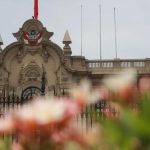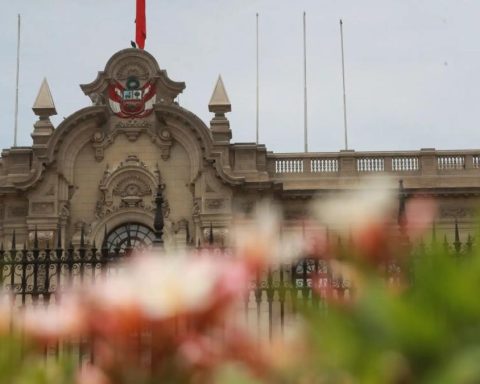“Like many men and women, I took the step forward, I left family and studies at the university to add my personal effort to that of others, who like me, felt the blush of shame in their consciences and said enough of opprobrium. , of outrages and humiliations, of crimes and larceny; It is time for dignity, justice, homeland.”
This is how he begins by describing his involvement against the Somocista dictatorship, in his memoir “North heading. Story of a survivor ex-guerrilla fighter Hugo Torres Jiménez, retired brigadier general and political prisoner on the orders of Daniel Ortega and Rosario Murillo, who died at the age of 73 on February 12, after more than two months in which the regime kept his death hidden. whereabouts and health condition.
Torres told in the book that “it was not easy to take that step”, because he had to “overcome prejudices and fears, face the fear of my parents and mine to suffer prisons and torture and to lose their lives at the hands of the assassins of the dictatorship ”.
Also read: Hugo Torres, political prisoner of Ortega and Murillo in Nicaragua, dies
But he defeated him and that led him to become part of the guerrilla commando that carried out the “Victorious December” operation, which consisted of assaulting the house of José María “Chema” Castillo, where a party for high-ranking officials of the Somoza dictatorship was being held. That December 24, 1974, the release of several political prisoners was achieved, including Daniel Ortega.
“When he was chosen to join the ‘Juan José Quezada’ Command, he spent months in seclusion and training until they executed the ‘Vicious December’ operation., in which they kidnapped Somocista government officials who were attending a party at the house of “Chema” Castillo. The command demanded the release of political prisoners at the time. They achieved their goals in less than 48 hours. Later, they flew to Havana with the rescued political militants, including Daniel Ortega, their executioner and current illegitimate president of Nicaragua,” Mónica Baltodano wrote in an article titled “Hugo Torres Jiménez: hero of the fight against the Somocista dictatorship”.
Four years later, in 1978, he was part of the FSLN guerrilla command that assaulted the National Palace, and allowed the release of another large group of political prisoners, including Tomás Borge, Javier Carrión, René Núñez and Doris Tijerino.
“He was selected to join the ‘Rigoberto López Pérez’ Command, which carried out ‘Operation Death to Somocism’ or assault on the National Palace, another spectacular action that allowed the release of more than sixty political prisoners. He was second in command of the operation, in which Dora María Téllez also participated, as political and negotiation manager, ”Baltodano details. Téllez is currently also a political prisoner of Ortega and Murillo.
“He is the only one who participated in the two great political-military operations carried out by the FSLN throughout its struggle,” Baltodano stated in his Memories of the Sandinista struggle.
“The terror had to be buried”
Torres described in his memoir: “The stink of corruption and the thousands of corpses of citizens murdered by the Somocista regime pushed me forward and put a shovel and a rifle in my hands. It was necessary to end and bury the terror and injustices of so many years”.
“Many did not reach the end of the road, they paid with their lives for the audacity of wanting to move the wheel of history forward, towards a future full of bread and freedom for body and soul,” he said.
What’s more: More than 100 relatives of political prisoners demand the freedom of all
After the triumph of the Sandinista revolution, Torres became deputy minister of the interior and shortly thereafter was transferred to the Sandinista Popular Army (now the Nicaraguan Army) where he rose to the rank of brigadier general at the time of his retirement in 1998.
Baltodano recalls that “since his reincorporation into civilian life, Hugo expressed his criticism of the party leadership, then dominated by Daniel Ortega and quickly heading for a pact with the right-wing Arnoldo Alemán.”
“We remember Hugo in the days when he related to groups critical of the nascent Ortega regime, expressing his concern about the drift of authoritarianism and the risks that it meant for democracy in Nicaragua,” he explains.
A video for history
Torres held the position of vice president of the Sandinista Renovation Movement (MRS), now called the Democratic Renovation Union (Unamos), and precisely expressing his criticism of the Ortega-Murillo regime’s brutal repression against the Nicaraguan population landed him in jail.
“These are desperate blows by a regime that feels moribund, that has no legal basis, that has no justification from an institutional or legal point of view to remain in power beyond November of this year,” said Torres, in a video broadcast after his capture, at two in the afternoon of June 13.
His home was raided by the regime authorities who stationed several National Police patrols since the morning hours. The former guerrilla declared that he never thought that at his age he would “be fighting in a civic and peaceful way against a new dictatorship.”
“46 years ago I risked my life to get Daniel Ortega and other fellow political prisoners out of jail. In 1978 I risked it again, together with Dora María Téllez and other companions, to free approximately 60 political prisoners, including Tomás Borge, Doris Tijerino, René Núñez and others, ”he recalled in the video.
The FSLN dissident insisted that this is how life turns and “those who once embraced principles in favor of justice, in favor of freedom, today have betrayed them, today they are their main enemies.”
Regime kept him isolated
Torres was detained to be investigated for “acts that undermine independence, sovereignty, and self-determination,” based on Law 1055, the “Sovereignty Law,” approved by the regime, with which they can decide what constitutes formal interference. discretionary.
Too: Judges, prosecutors and police officers commit the crime of torture and malfeasance
In early January, Baltodano revealed that “it is public knowledge that on December 17, 2021, Hugo Torres was taken from the cell he shared with other prisoners in El Chipote; that during the last few weeks he had gotten sick quickly and that his companions had to help him several times, because, due to the degree of swelling in his legs, he could barely move on his own. He was treated by prison doctors, but they were unable to alleviate his situation.”
Baltodano added that Torres “suffered a long faint” on December 17 and “was taken from his cell to an unknown destination.”
This February 12, when his death was made official, he was serving 244 days under arrest, in isolation and in inhuman conditions, as family members of political prisoners and human rights organizations have denounced.
Since his imprisonment, relatives of Torres, through a letter, expressed their fear of what could happen to his life. “Retired General Hugo Torres is currently 73 years old and according to international humanitarian law, and common sense, a person over 70 years of age should not be held outside their own residence, much less without legal justification and in the midst of a pandemic,” they demanded.
Fanatic of couplets and never let himself be subdued
Torres was born on April 25, 1948 in Madriz, near the border with Honduras, although he grew up in León. His father was a member of the National Guard, but he became involved in clandestine life against the dictatorship in early 1974.
“I am from León, and León is the birthplace of Rubén Darío, Alfonso Cortés and many poets. Since I was a child I was a follower of the gigantona, and what’s more… I had a gigantona, it wasn’t as big as others, and I was a couplet with tin drums because we didn’t have to buy leather drums, “he revealed in one interview with the press in November 2017, after the publication of his second book “Coplas y some infiltrated poems”.
Away from political life, for Baltodano “Torres never submitted to power and when Ortega resumed the Government he did not accept positions, perks or privileges.”
So much so that he was the only former general of the National Army active “in giving continuity to the struggle for democracy in Nicaragua and with his example, from the ergastulas of the regime, the former head of the Political Directorate of the Sandinista Popular Army (EPS), is marking the heading north to follow for their former comrades-in-arms and for all those who resist surrendering and living as slaves”.
An ex-soldier who knew Torres affirms that his imprisonment, when he was a member of the Sandinista Assembly until 1990 and head of the Political Directorate of the Army, demonstrates the viciousness and creates a greater resonance within the ranks of the current Army.”
“They know that there was no legal basis for their detention, and the message sent to the Sandinistas and to the components of Defense and Security is that no one is safe from the fury and hatred of the rulers. It is part of the terror they want to impose, ”she assures.
Torres himself declared to La Prensa, in december 2019, that this time there is no place for weapons, and that the difference, after the April Rebellion that began in 2018, against this new dictatorship is that it is a peaceful struggle. “The people have shown an unimaginable level of firmness and resistance and in conditions of peaceful struggle. It is a novelty in our country. So I see that the mafia and criminal political project of Ortega and Murillo, of transferring power to his wife and children, in a revision of the Somoza dynasty, is over, ”he said.
His children Hugo Marcel, Lucia Aracelly and Maria Alejandra confirmed his death and revealed that no funeral honors or public ceremonies will be held, at the express will of their father.















